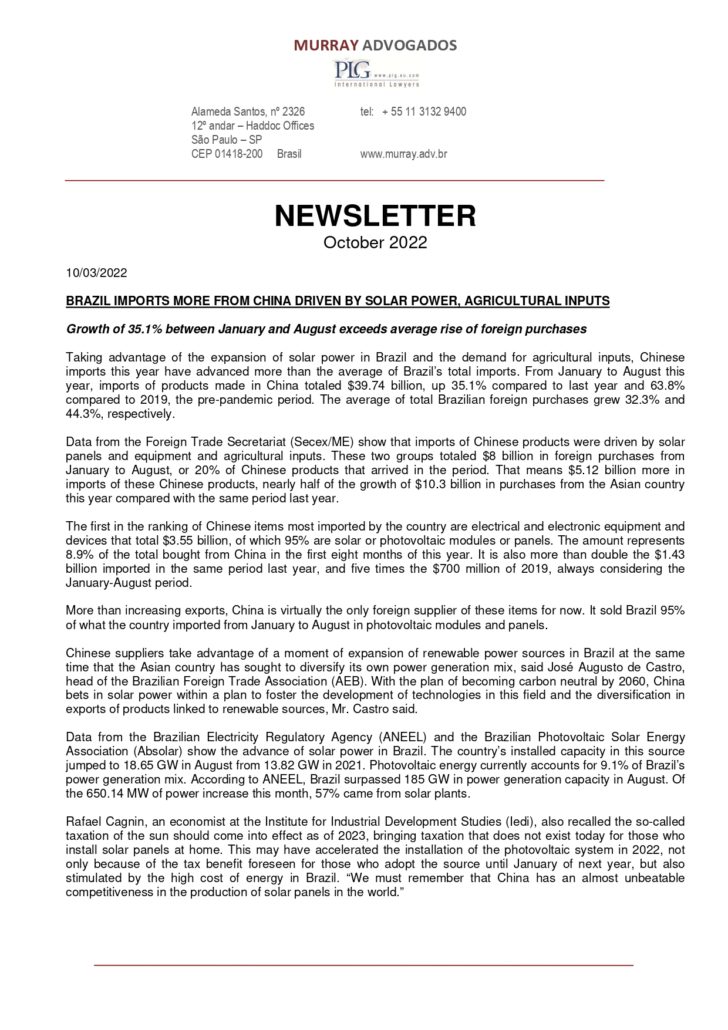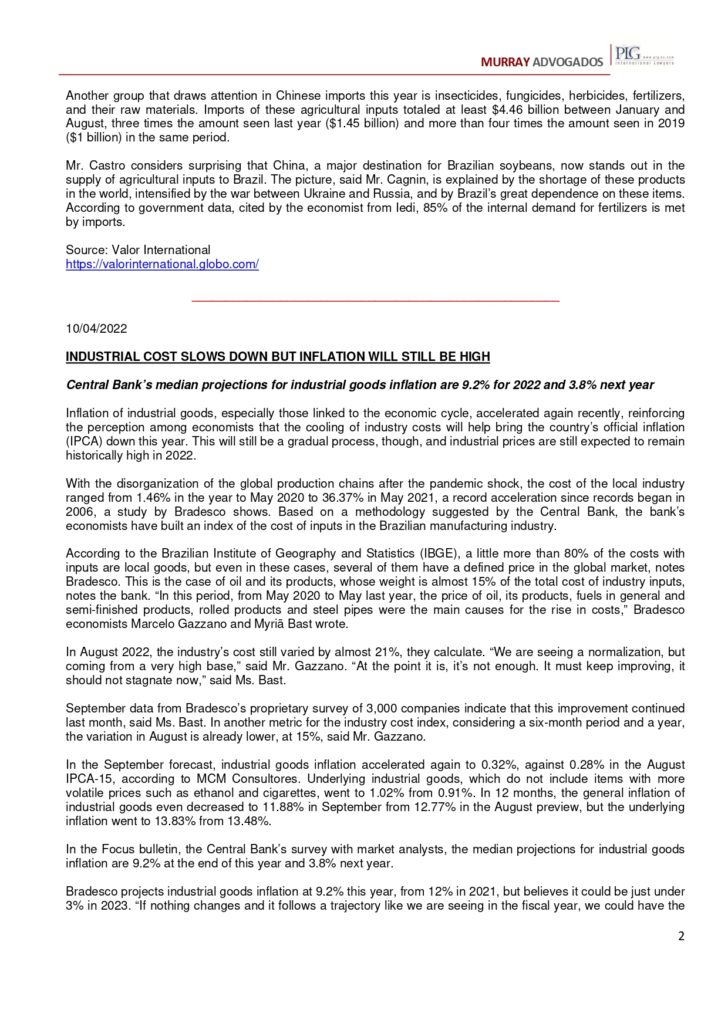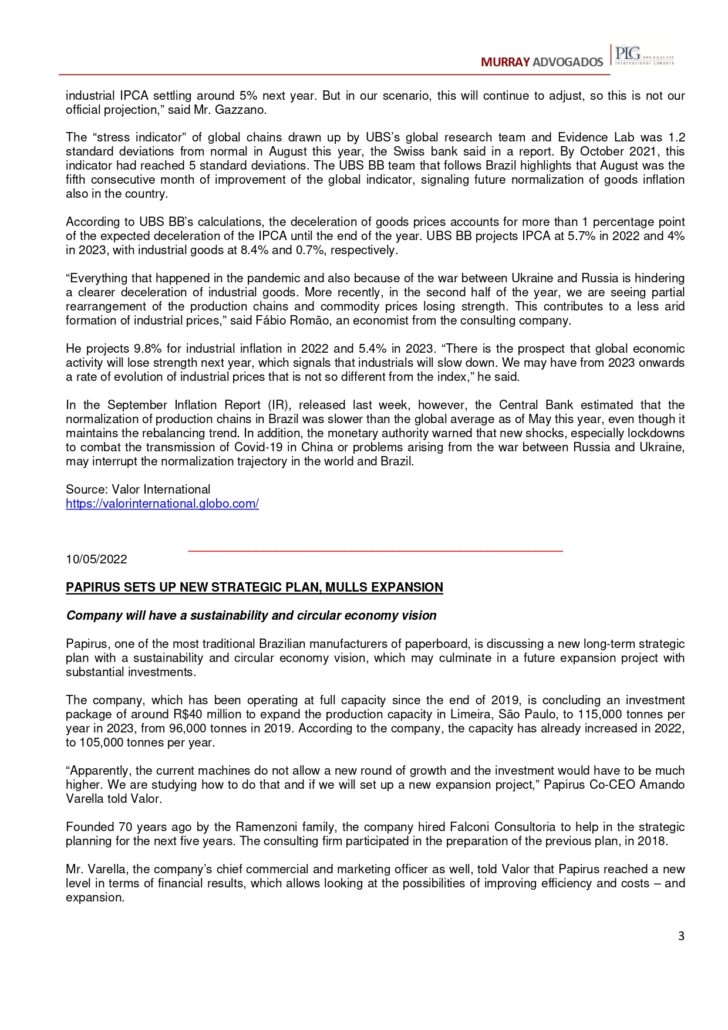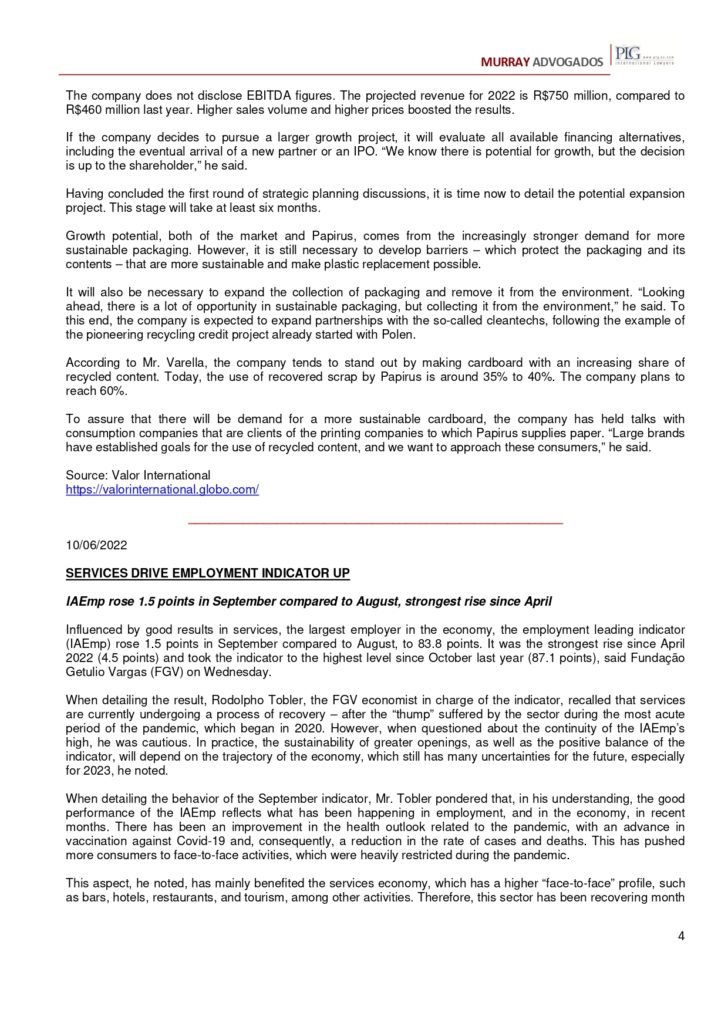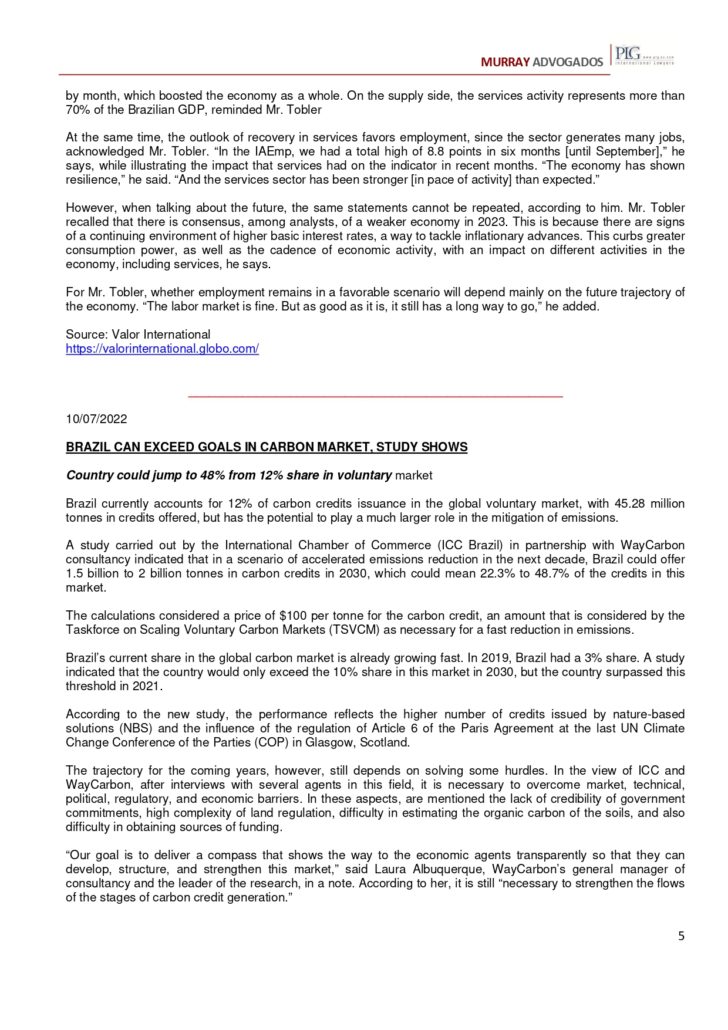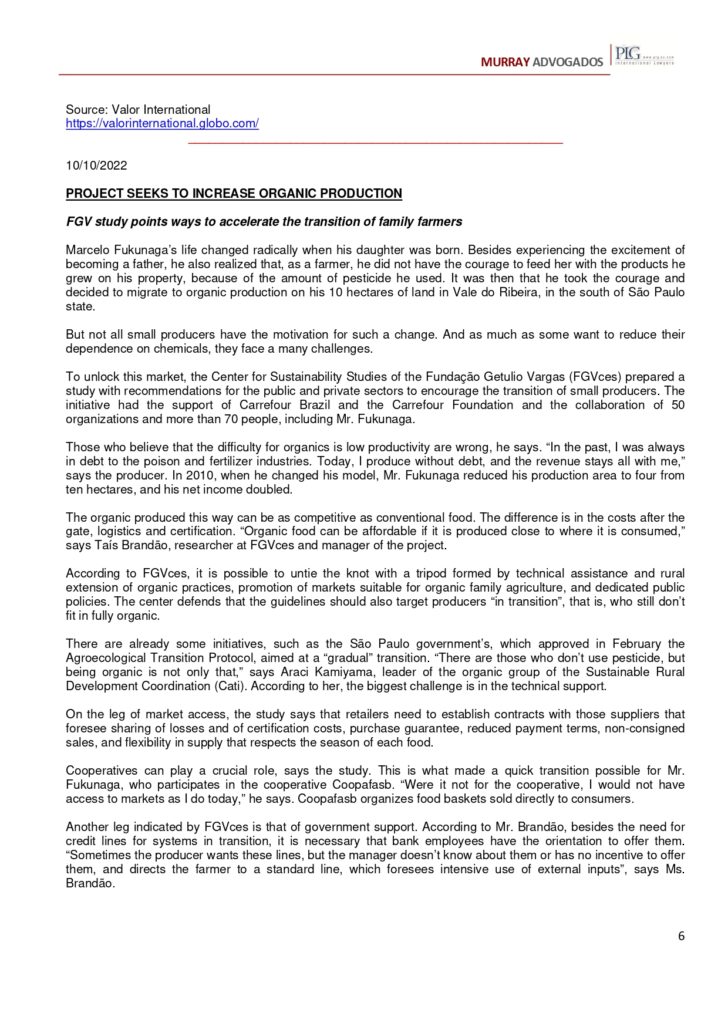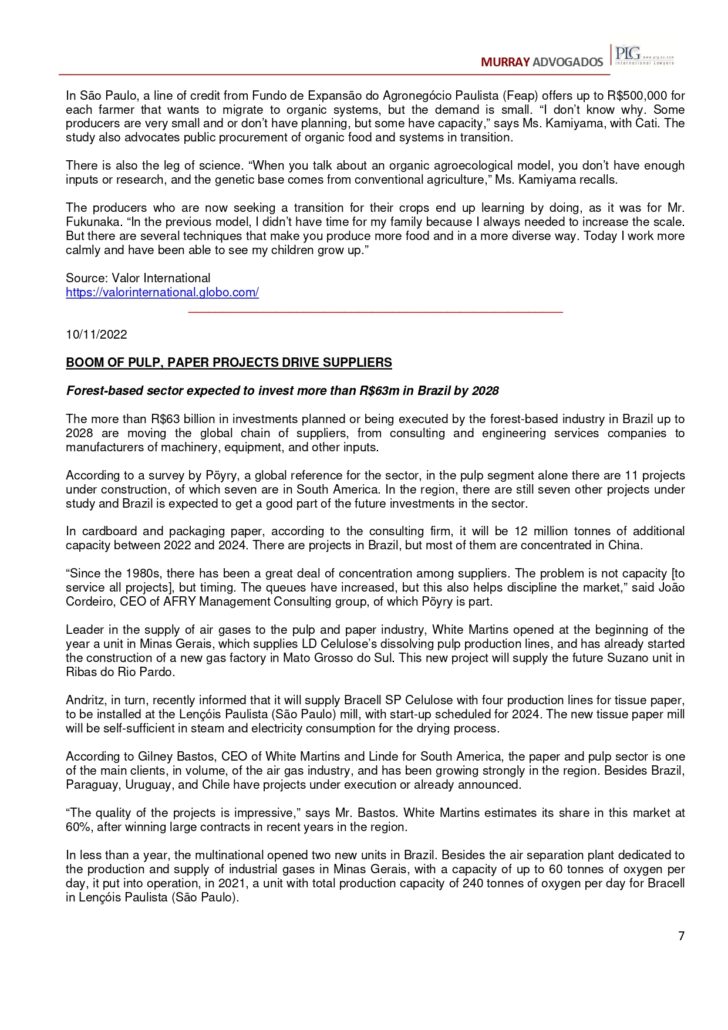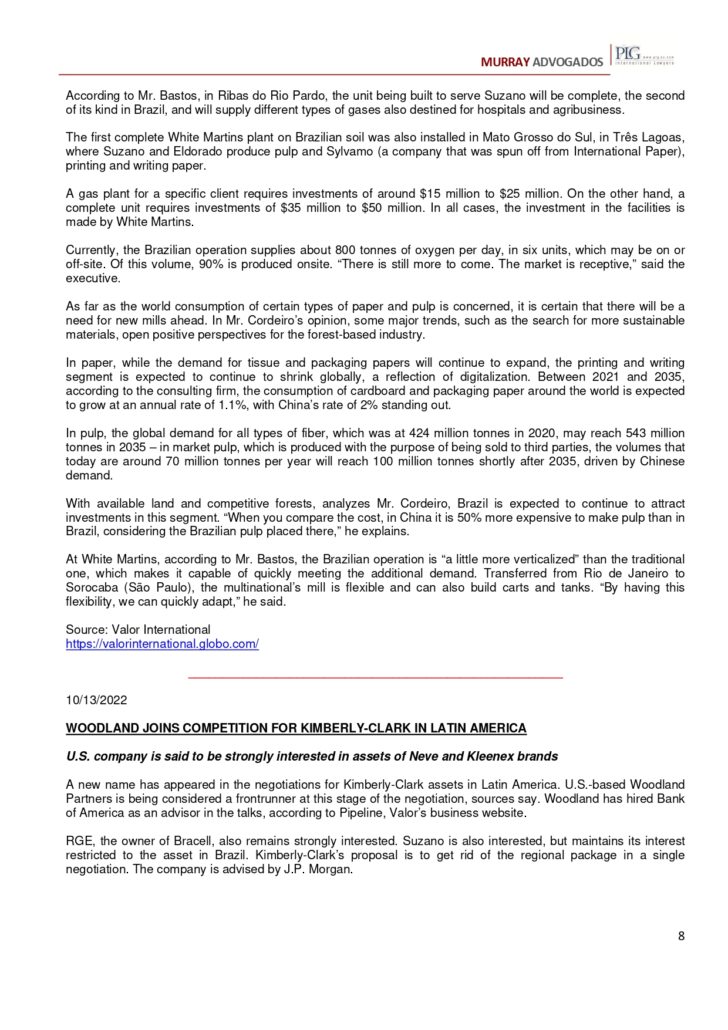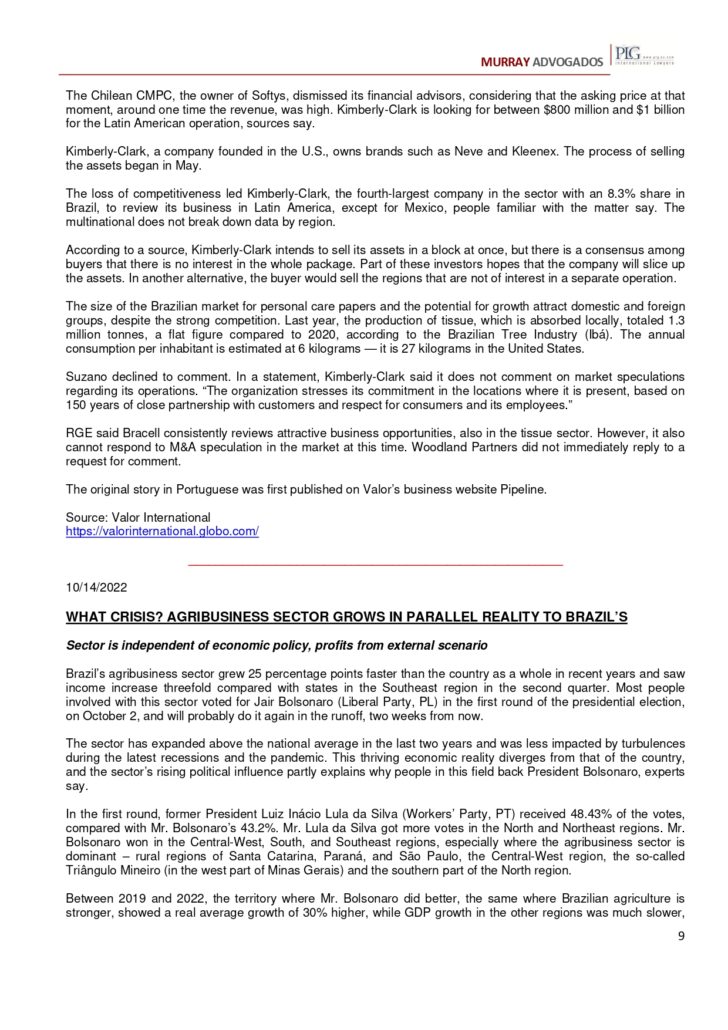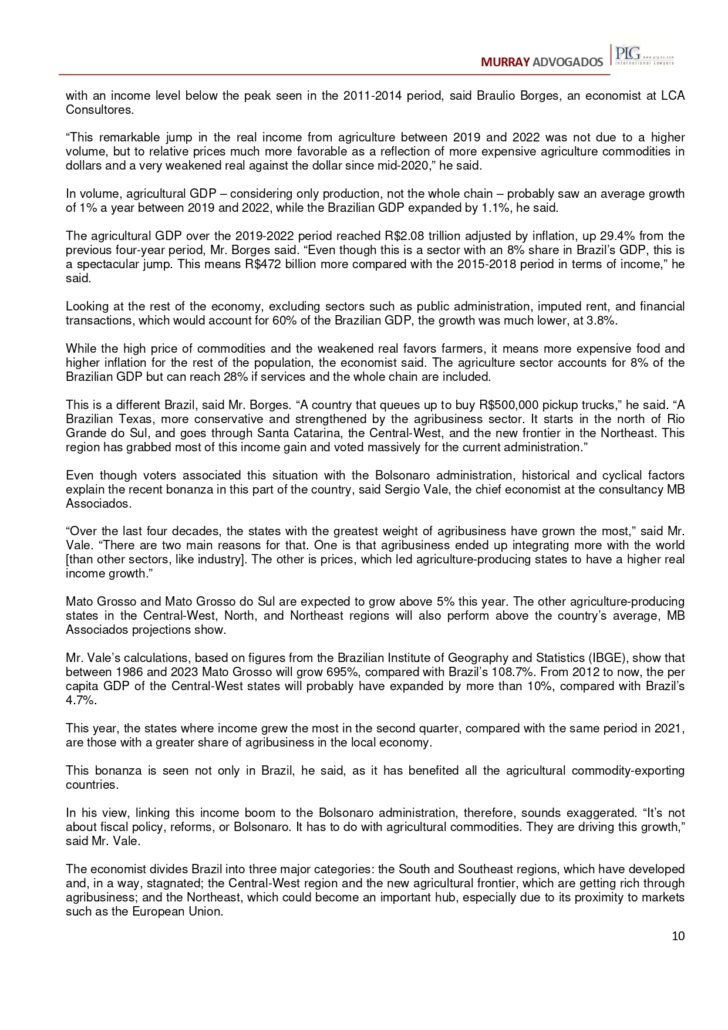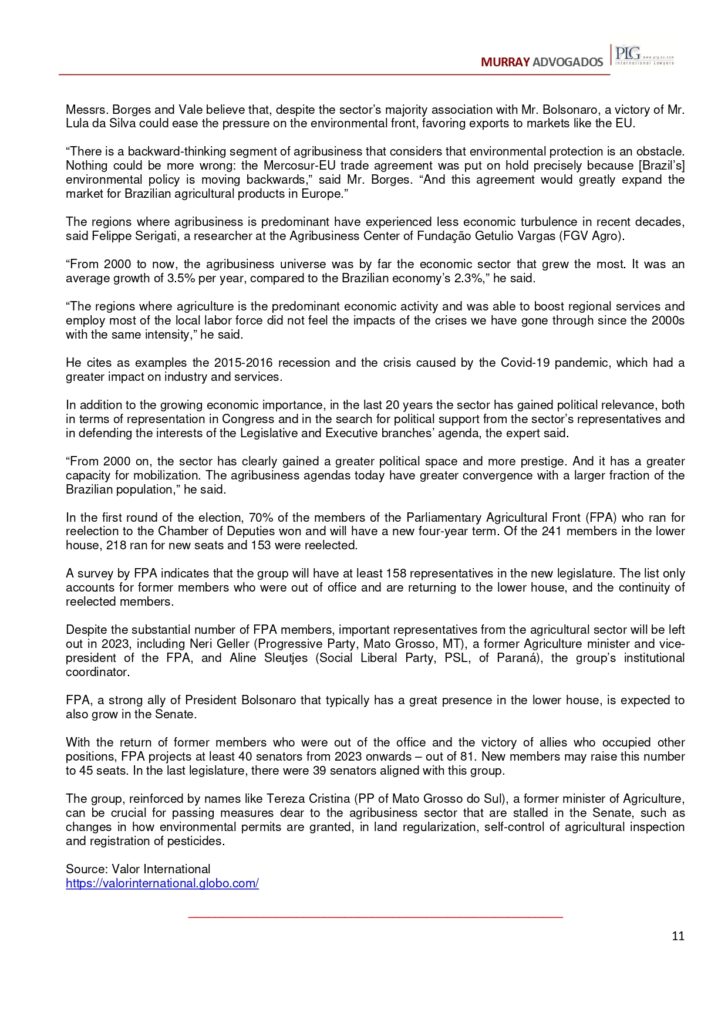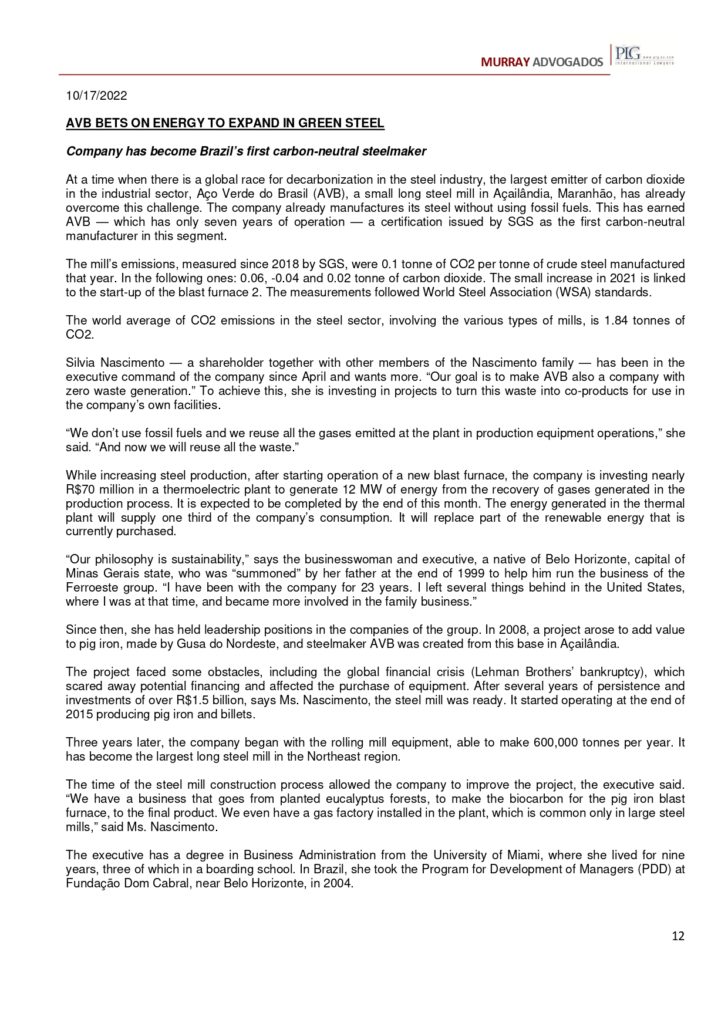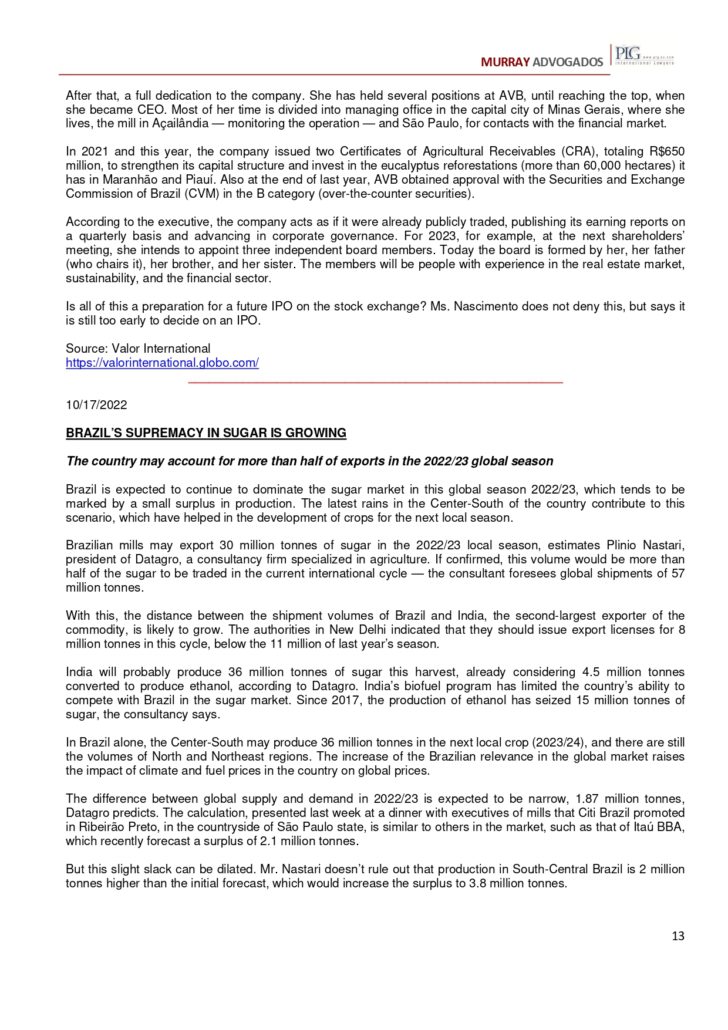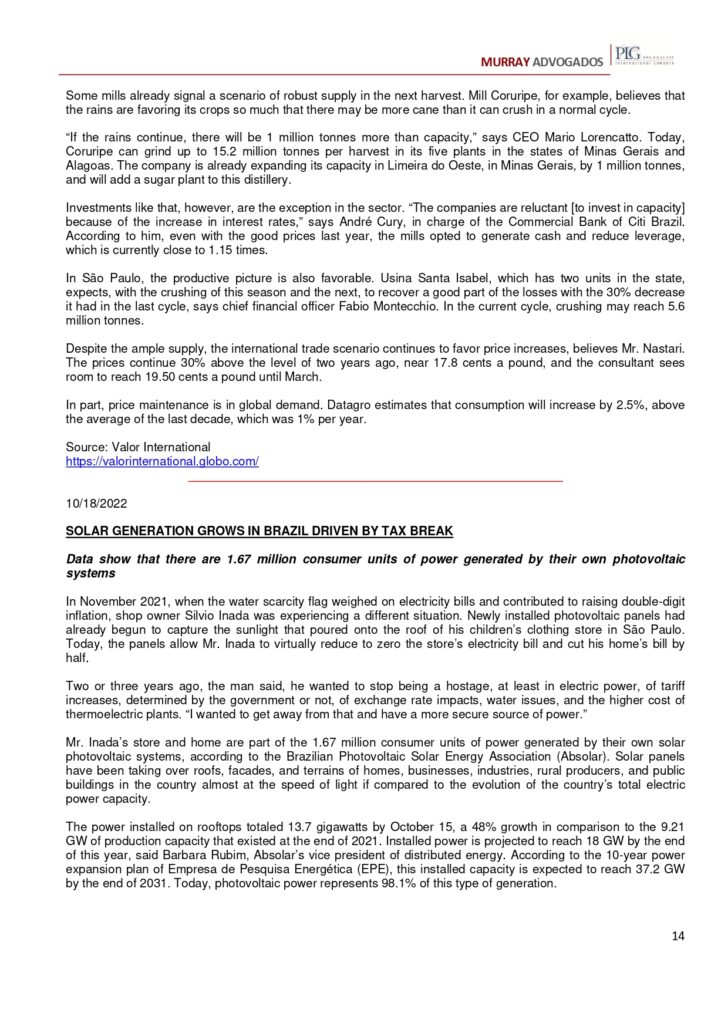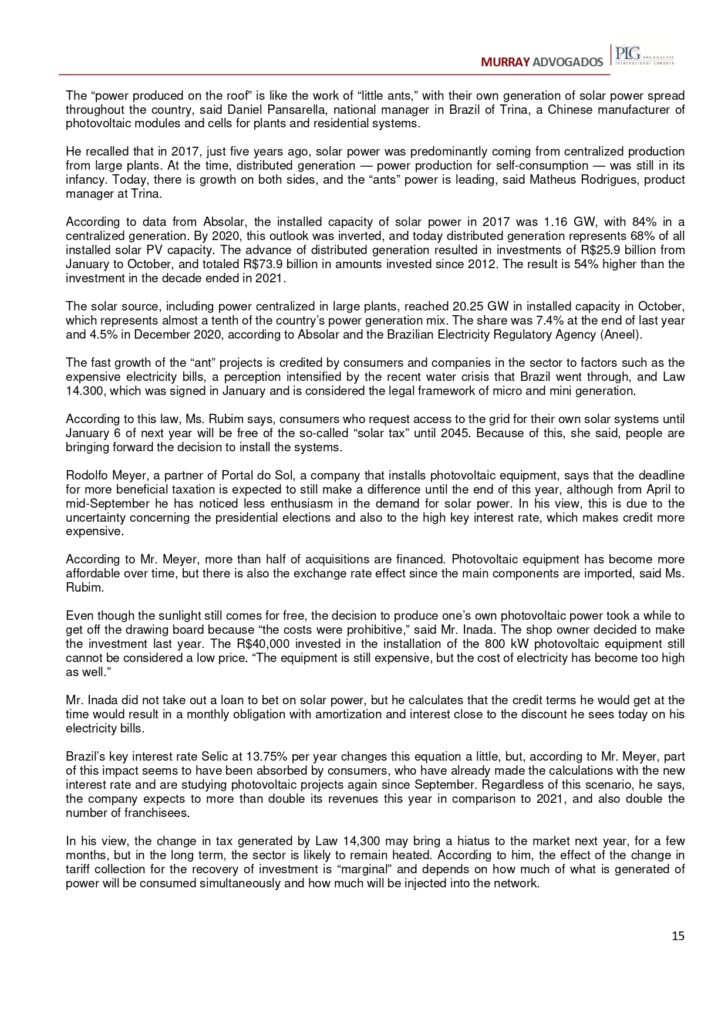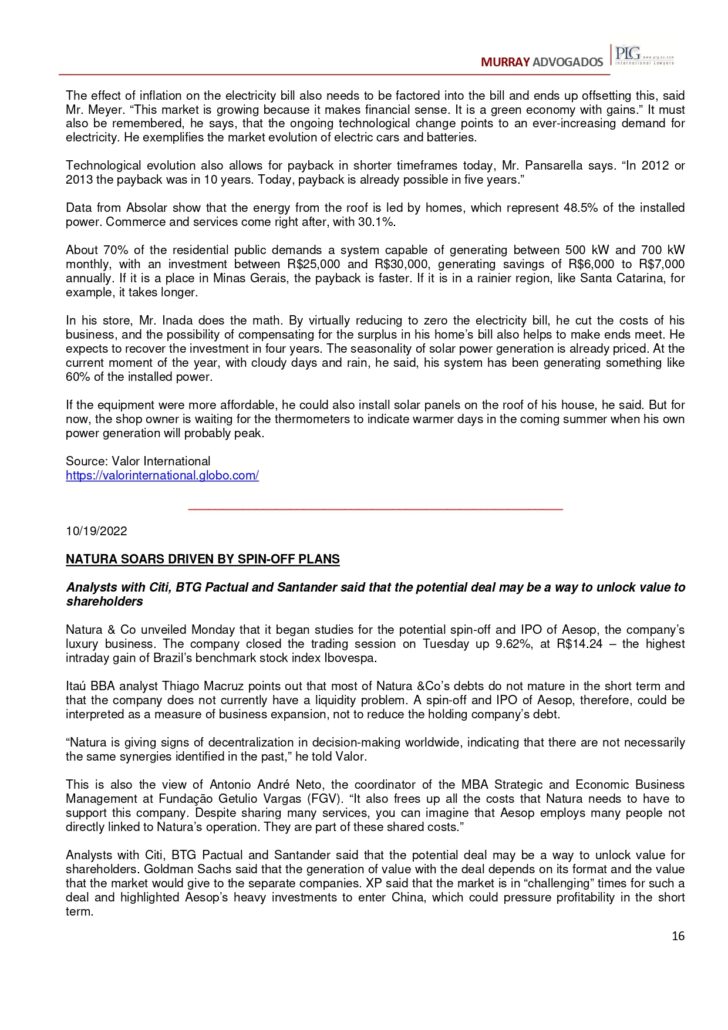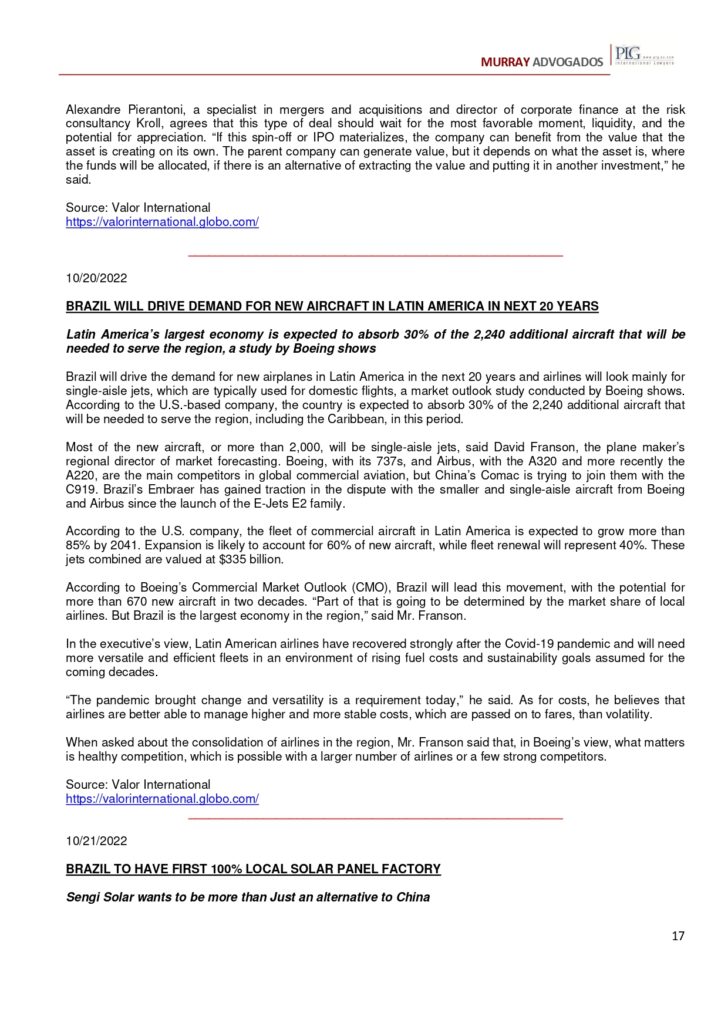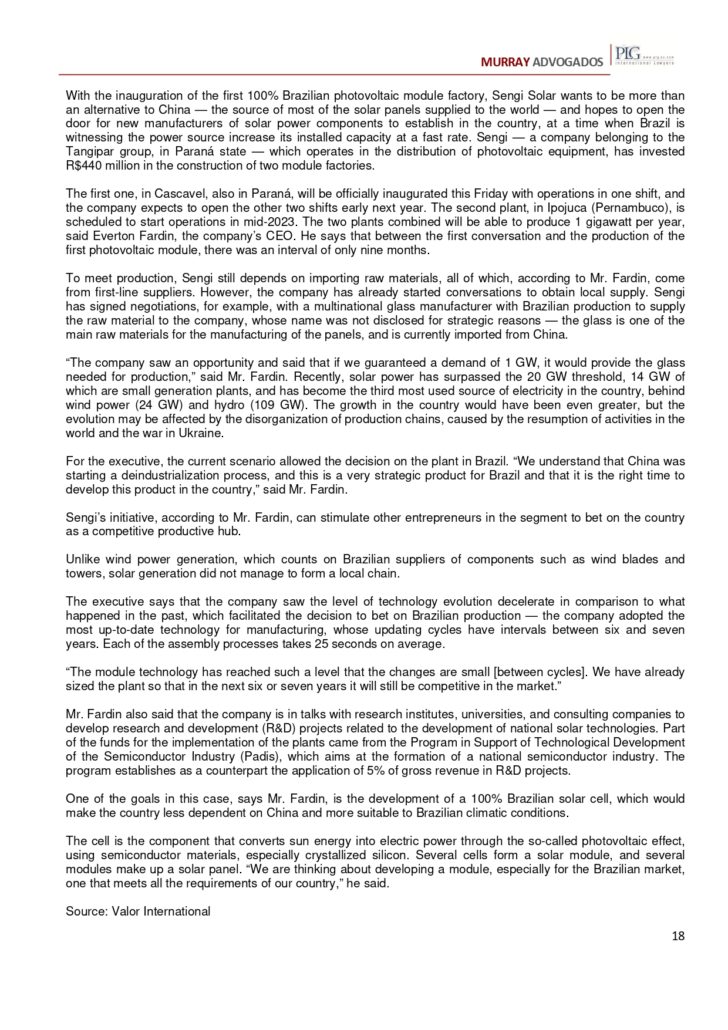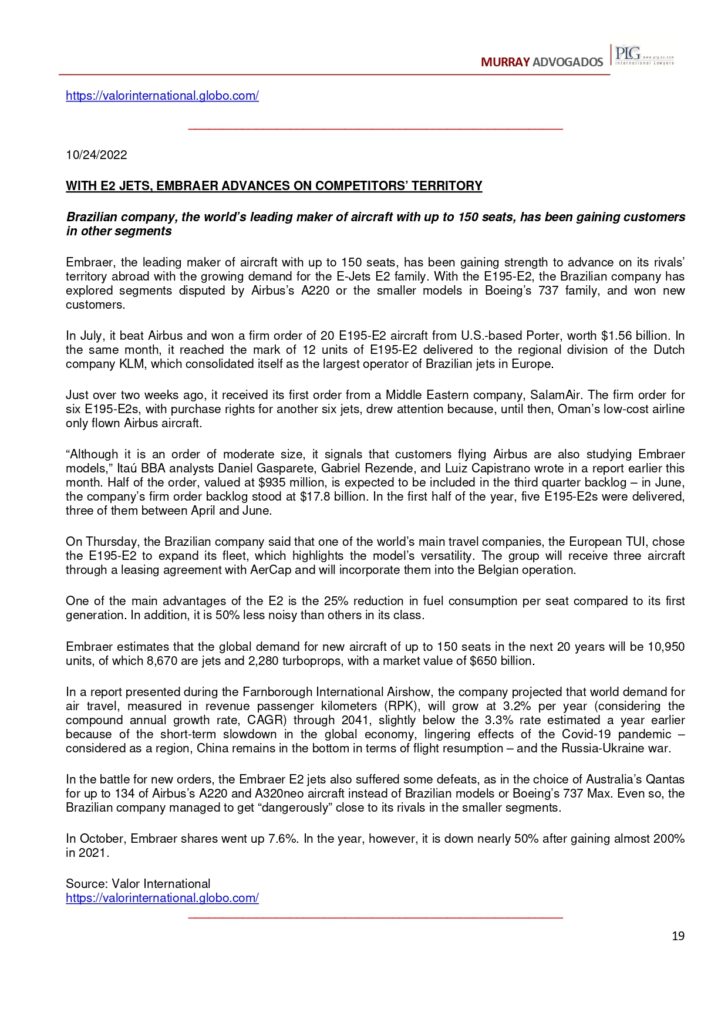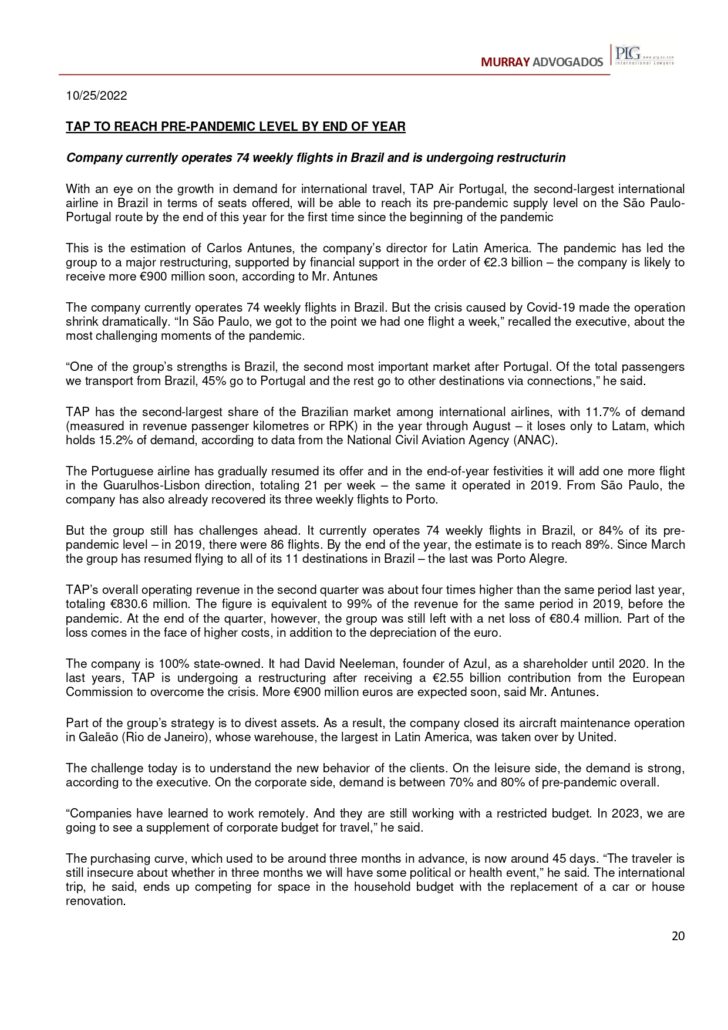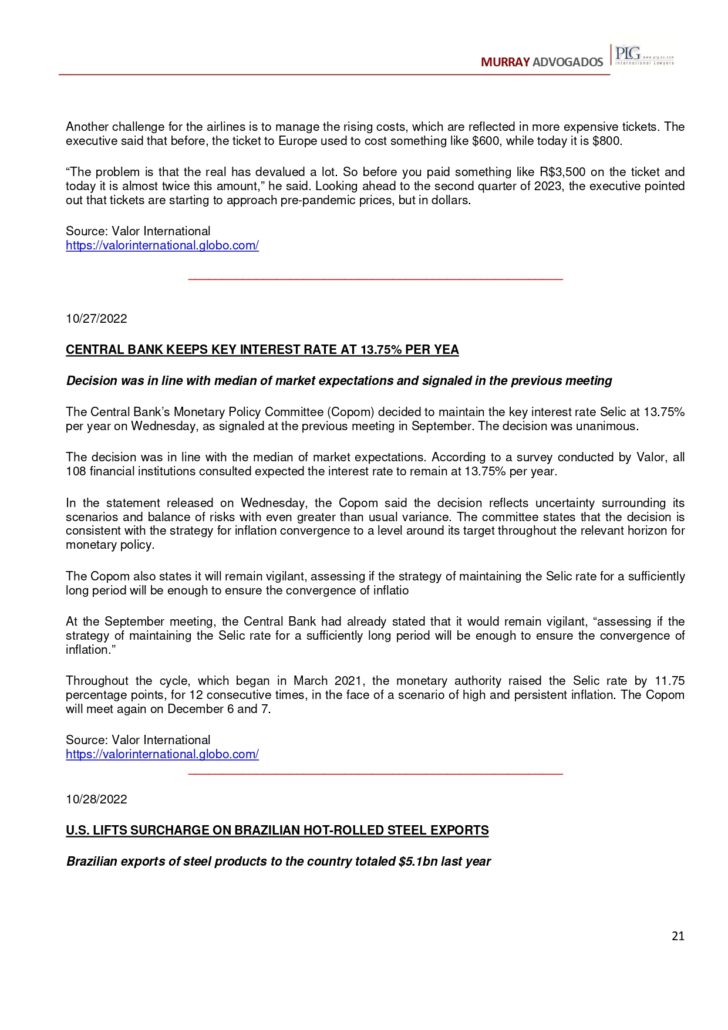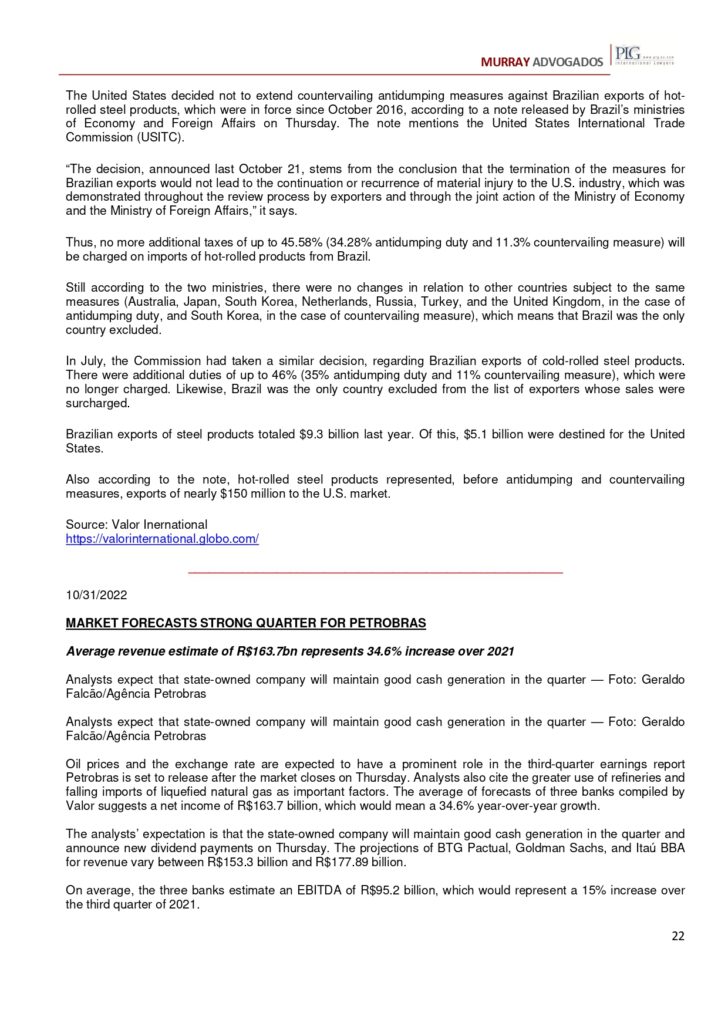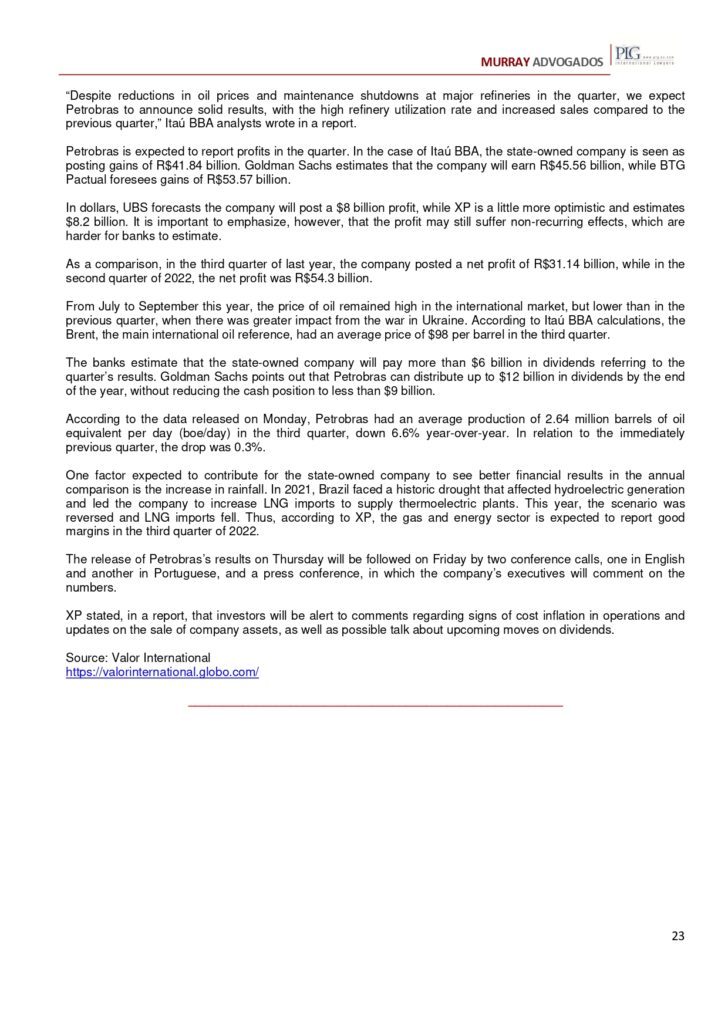Expansion has resisted the uncertainties linked to politics and the country’s fiscal policy
11/06/2022
/i.s3.glbimg.com/v1/AUTH_37554604729d4b2f9f3eb9ad8a691345/internal_photos/bs/2022/m/F/LMWEBqTsah4nRfxa6rUA/310322-20ibiuna-20037.jpg)
Vivian Lee — Foto: Carol Carquejeiro/Valor
It seems that Brazil’s corporate debt market ignored the general elections. The moment of expansion has resisted the uncertainties linked to politics and the country’s fiscal policy. Both supply and demand for corporate debt securities showed a strong pace even in the months previous to the vote – elections typically put issuers and investors in a “wait-and-see” mode.
“We expected higher volatility before the elections, with investors apprehensive about buying new assets,” said Artur Nehmi, partner and fixed-income manager at Sparta. “But August and September were two of the best months of the year in terms of volume of bond offerings in the primary market.”
Figures from Anbima, the association of securities firms, show that issues increased 3.81% year-over-year in September, to R$40.7 billion, considering bonds, commercial notes, promissory notes, real estate receivables certificates (CRI), agribusiness receivables certificate (CRA) and credit rights investment fund (FIDC). In August, the amount climbed 1.7% year-over-year, to R$33.76 billion.
In spite of the single-digit growth, the expansion is substantial because the basis of comparison was high. According to Anbima, the fixed-income segment raised R$467.9 billion, up from last year’s record. Bonds were the main instrument used by companies last year, with a volume of R$253.4 billion, more than double that of 2020.
In the nine months of 2022, issues reached R$329.22 billion, up 24.85% year-over-year, considering the same instruments. A survey by Ibiuna based on funds with at least 20% of their capital allocated in corporate debt and more than R$100 million in net worth indicates net inflow over 18 months in a row in these portfolios. They raised R$370 billion in the period.
“October is not yet consolidated, but according to the preliminary figure, the pace remains very strong,” said Vivian Lee, partner, credit strategy manager and co-chief investment officer at Ibiuna. “The funds still need to allocate capital, and a good part of this flow is directed to high-grade securities. As long as strong funding continues in the industry, demand will follow suit,” she said.
“The volume of corporate issues increased a lot [between 2021 and 2022] and matched demand,” said Ana Luísa Rodela, head of credit management and analysis at Bradesco Asset Management, at an event of the Brazilian Association of Pension Funds (Abrapp). “In eight months of 2022, there was a 30% year-over-year growth in the supply of credit [in the capital market]. So funding has grown a lot, but demand has been able to keep up.”
The resilience of the corporate debt market goes beyond rising interest rates that drove a migration of funds from equities and hedge funds to bonds, said Paulo Bokel, head of credit at Absolute. “There was a significant growth in the market sustained by the arrival of investment platforms and BNDES [Brazilian Development Bank] winding down subsidized loans to large companies,” he said. “We saw the stock growing mainly after 2017 and 2018.”
Mr. Bokel explains that in 2013, bank credit for businesses amounted to R$350 billion, while corporate debt securities stood at R$280 billion. “Today we have, in August data, a stock of R$1.1 trillion in corporate debt versus R$440 billion in corporate bank credit,” he said.
The transformation of the distribution channels, the investment platforms, and the end of subsidized credit from state-owned banks enabled the entry of new companies in the capital market and an increase in financial firms with teams focused on corporate debt, said Mr. Bokel, with Absolute. “Many new companies that were not so well known joined the market, and credit funds came in the wake of this expansion.”
The secondary market also reflected this expansion, said Ms. Lee, with Ibiuna. “When we look at the number of securities and the volume traded by the new independent firms, we see that the secondary [market] has improved a lot and this brings as a positive side a greater liquidity for the assets.”
“Since 2020, we started to have players in the secondary market of debentures [the main category of corporate debt securities] that didn’t operate before,” said Ms. Rodela, with Bram. “Most are operating in the secondary debenture market.”
According to her, “this year, we [Bram] have already had more than R$10 billion of trading in the secondary [market of debentures].” The specialist explains that they are “new securities that were with other players and now come to credit funds, bringing the possibility of active management that did not exist before, such as doing duration management [average investment term]”.
Data from Anbima indicate a traded volume in the secondary market of debentures of R$251 billion in 2022 by October 26. This is equivalent to a monthly average of R$25 billion. The volume is 13.63% above the monthly average of 2021, of R$22 billion. The level is more than double the 2020 average of R$12 billion, and almost three times higher than the trading per month in 2019, when the secondary market turned over R$8.5 billion monthly on average.
The variation in the spread – the premium traded in the secondary market – also provides a barometer of the current balance between supply and demand, even in times of uncertainty. The JGP Idex-CDI index, which tracks a basket of the most liquid CDI-indexed debentures, indicates relative stability in the average spread over 2022. CDI is the interbank deposit rate.
Ibiuna highlights the strength of fixed income in a broader vision. According to Ms. Lee, “there is still a strong flow of funds to [banking instruments such as] CDBs [certificates of bank deposit], LCIs [real estate credit bills] and LCAs [agribusiness credit bills] from large financial institutions.” In his view, many investors prefer the credit risk of large banks, as shown by “a very large flow directed to CDBs.”
The stock of debenture bonds is today around R$983 billion, said Ms. Lee. The supply of CDBs, on the other hand, which are the banks’ main funding instrument, currently reaches R$2 trillion. “The evolution of stock growth reflects this dynamic,” she said. “That of CDBs is double compared to 2019, while that of debentures in the same period advanced about one and a half times.”
In her view, the indication of an inflow of funds in fixed income signals the maintenance of demand for bonds in the following semester. However, from the moment in which the Central Bank starts to signal more clearly the beginning of a fall in interest rates, this flow may reverse toward riskier assets, such as equities. “Everyone knows that credit is cyclical. And a reversal will depend a lot on the performance of other asset classes, combined with a visibility of falling interest rates. The moment these numbers show net redemption, we will see a greater need for portfolio adjustment to maintain credit positions.”
*By Sérgio Tauhata — São Paulo

/i.s3.glbimg.com/v1/AUTH_37554604729d4b2f9f3eb9ad8a691345/internal_photos/bs/2022/H/O/arP88aSJiBiMhaCiXmrA/01pol-100-petrobras-a8-img01.jpg)
/i.s3.glbimg.com/v1/AUTH_37554604729d4b2f9f3eb9ad8a691345/internal_photos/bs/2022/b/Q/BTn90dQQm8NyolsR8nIg/04emp-100-rumo-b2-img01.jpg)
/i.s3.glbimg.com/v1/AUTH_37554604729d4b2f9f3eb9ad8a691345/internal_photos/bs/2022/E/i/gpmmkkR1yMjFJpXvKf8w/011122murilo10.jpg)
/i.s3.glbimg.com/v1/AUTH_37554604729d4b2f9f3eb9ad8a691345/internal_photos/bs/2022/U/C/lfQxPvSOe6iW07TkFSKg/petrobras.jpg)
/i.s3.glbimg.com/v1/AUTH_37554604729d4b2f9f3eb9ad8a691345/internal_photos/bs/2022/X/R/1laRLNTkSY9Yk6HtjRYg/03emp-100-brask-b1-img01.jpg)
/i.s3.glbimg.com/v1/AUTH_37554604729d4b2f9f3eb9ad8a691345/internal_photos/bs/2021/I/F/G8dq59QZiMn1FfJHysCw/farmaceuticasub-120318blau039.jpg)
/i.s3.glbimg.com/v1/AUTH_37554604729d4b2f9f3eb9ad8a691345/internal_photos/bs/2022/h/p/BG2PxAQCmxaJBwwz5bvA/251022luiz12.jpg)
/i.s3.glbimg.com/v1/AUTH_37554604729d4b2f9f3eb9ad8a691345/internal_photos/bs/2022/r/L/mAYjBFQi2BHNu2c0QdKw/300cf27b2ef942d4b9ddfc4379e35aac-e108b.jpg)
